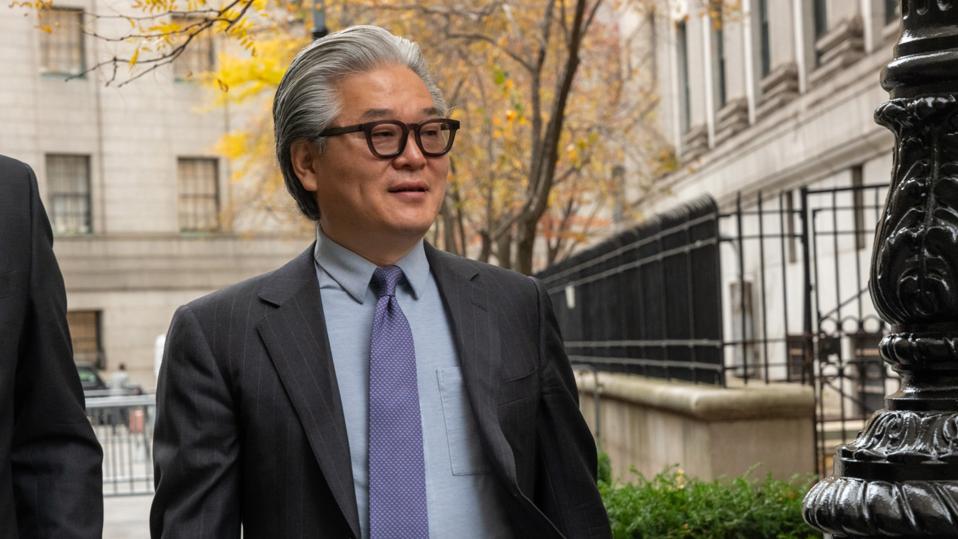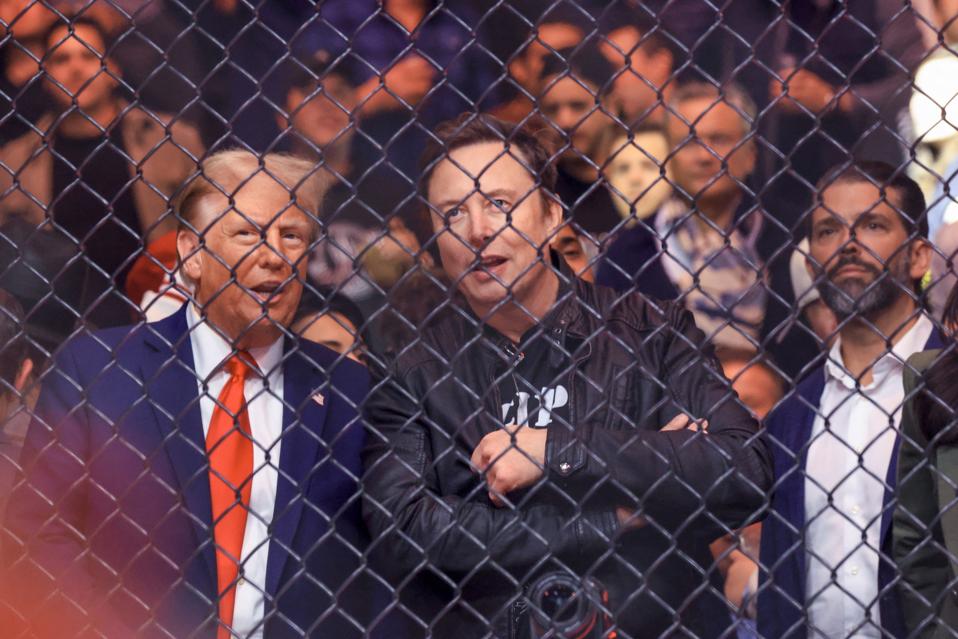Former President Donald Trump told his ex-CFO Allen Weisselberg he wanted his net worth to “go up” on financial statements, a Trump Organization executive testified in court Monday, as New York Attorney General Letitia James argues the ex-president and his company committed fraud by intentionally inflating the value of their assets.

Everybody’s picking on him: Former President Donald Trump scowls in the courtroom for the third day of his civil fraud trial at New York State Supreme Court on October 4 in New York City.
Getty Images
Key Facts
Prosecutors asked Trump Organization executive Patrick Birney if Weisselberg “ever [told] you that Mr. Trump wanted his net worth on the statement of financial condition to go up,” as Birney was questioned during the trial Monday.
“Yes,” Birney responded, adding he believed he was told that in Weisselberg’s office at some point between 2017 and 2019.
Trump attorneys opposed the line of questioning, calling it hearsay.
The testimony plays into prosecutors’ argument that Trump and his business associates intentionally boosted valuations in order to inflate Trump’s net worth and obtain more favorable business deals, arguing Trump inflated his net worth by between $1.9 billion and $3.6 billion each year between 2011 and 2021.
It also echoes testimony ex-Trump attorney Michael Cohen gave to Congress in 2019 and to prosecutors in the fraud case, claiming Trump directed him and Weisselberg to increase the value of assets in order to have his net worth rise each year, in part to boost his ranking on Forbes’ billionaires list.
Trump and his attorneys have strongly denied the allegations that Trump and his associates committed fraud, saying any valuations are subjective and based on Trump’s real estate expertise.
Forbes Valuation
Forbes estimates Trump’s net worth at $2.6 billion as of October, making him the 1193rd-richest person in the world on Forbes’ real-time billionaires tracker. Forbes previously valued Trump’s net worth at $3.1 billion between 2017 and 2019, the time when Birney’s conversation with Weisselberg allegedly occurred. Trump told Forbes in 2015 his published net worth is important to him because it’s “good for financing.”
What To Watch For
The fraud trial, now in its third week, is set to continue through mid-December. Trump is expected to testify at the trial. Cohen was expected to testify this week—and likely say under oath that Trump committed fraud—but had to delay his testimony due to a medical issue. A judge has already found Trump liable for fraud as part of the case, but he and his associates are still being tried for allegations including insurance fraud and falsification of business records, and whether the fraud was committed intentionally. The former president could face a $250 million fine and he and his children may be barred from running New York businesses if found liable at trial, on top of Judge Arthur Engoron already ordering his business certificates to be canceled. (An appeals court has paused that order.)
Key Background
James sued Trump, his associates—including his children—and the Trump Organization in November 2022, arguing the ex-president and his company had fraudulently misstated more than 200 valuations on financial statements between 2011 and 2021. The AG alleges Trump and his associates falsely inflated assets for personal gain, including the value of Trump’s Mar-A-Lago estate and the square footage of his Manhattan penthouse, which Trump’s attorneys deny. A number of witnesses from the Trump Organization and financial institutions have already testified at the trial about how financial documents were prepared and approved and how valuations were calculated, including claims that Trump Organization executives weighed adding a premium to valuations based on Trump’s presidential status and that Weisselberg didn’t notice the size of Trump’s penthouse was wrong on financial documents. In addition to Birney’s testimony about Trump wanting his net worth to go up, Weisselberg testified Trump would review the company’s statements of financial condition that were prepared for financial institutions until he became president, and he would “periodically” make comments on them.
This post originally appeared on Forbes.com


